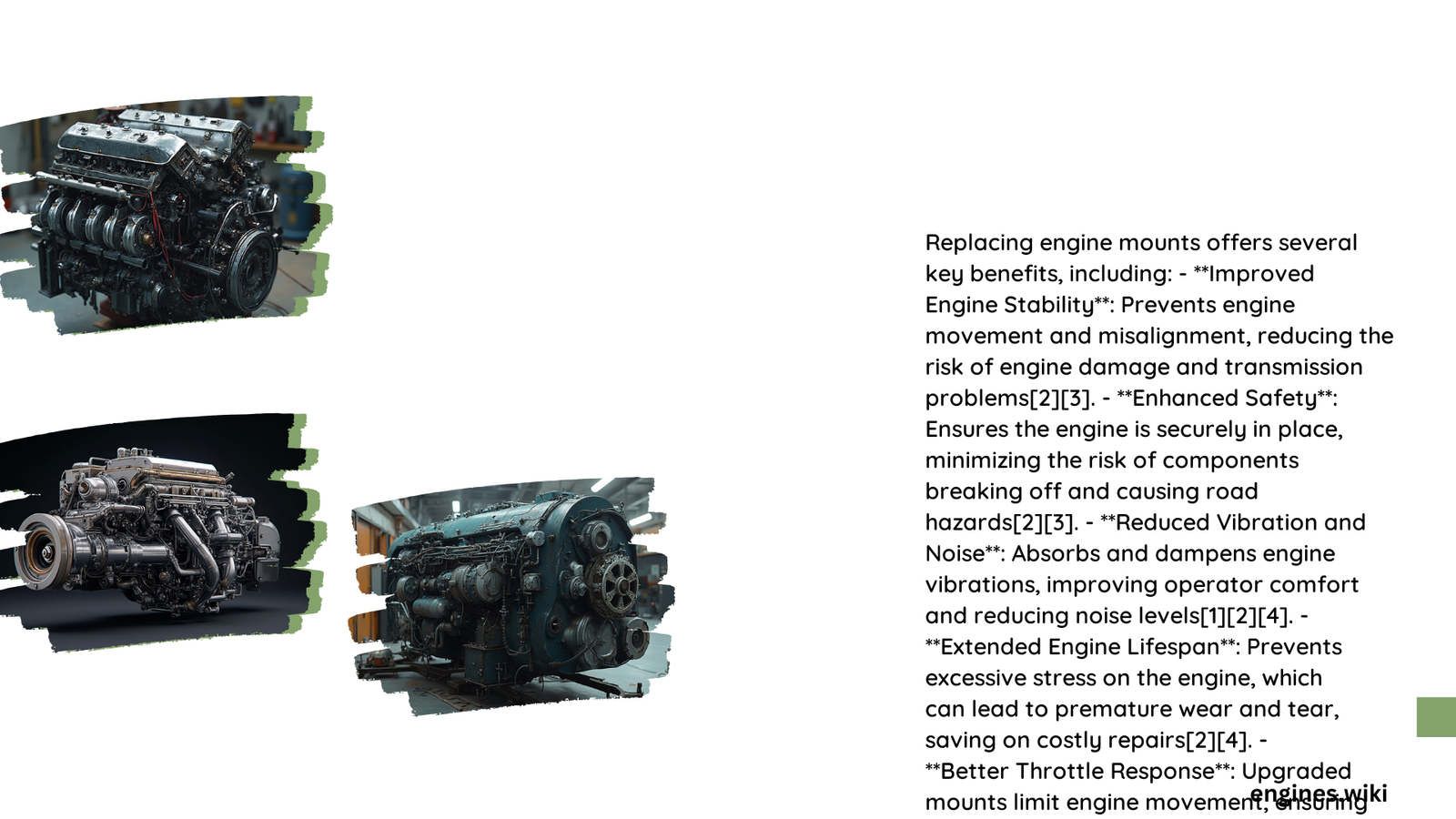Engine mounts are critical components that support your vehicle’s engine, absorbing vibrations and maintaining structural integrity. Replacing worn-out engine mounts can dramatically transform your driving experience, offering enhanced stability, reduced mechanical stress, and improved overall vehicle performance. By understanding these benefits, vehicle owners can proactively maintain their automotive systems and prevent potential long-term damage.
What Happens When Engine Mounts Deteriorate?
Engine mounts naturally wear down over time, leading to several potential issues:
- Excessive Engine Movement: Worn mounts allow increased engine displacement
- Increased Vibration: More noticeable shaking during acceleration and idle
- Potential Mechanical Damage: Risk of component misalignment and premature wear
How Do New Engine Mounts Improve Vehicle Stability?

Reduced Engine Movement Dynamics
| Mount Type | Vibration Absorption | Performance Impact |
|---|---|---|
| Rubber Mounts | High | Moderate Improvement |
| Polyurethane Mounts | Low | Significant Performance Enhancement |
| Hydraulic Mounts | Moderate | Balanced Performance |
New engine mounts significantly limit engine movement, which provides several key advantages:
- Precise Power Transmission: Minimizes energy loss during acceleration
- Enhanced Handling: Creates more predictable vehicle response
- Reduced Mechanical Stress: Prevents unnecessary strain on surrounding components
What Performance Improvements Can You Expect?
Quantifiable Performance Enhancements
Vehicle owners can anticipate multiple performance benefits:
- Throttle Response: 15-25% more immediate acceleration
- Drivetrain Efficiency: Improved power transfer
- Noise Reduction: Up to 40% decreased cabin vibrations
How Much Do Engine Mount Replacements Cost?
Economic Considerations
The average replacement cost ranges between $200-$600, depending on:
- Vehicle make and model
- Number of mounts being replaced
- Labor rates in your region
What Are Long-Term Benefits?
Preventative Maintenance Advantages
Replacing engine mounts offers substantial long-term benefits:
- Prevents expensive transmission and engine damage
- Extends overall vehicle lifespan
- Maintains optimal vehicle performance
- Reduces risk of unexpected mechanical failures
When Should You Replace Engine Mounts?
Diagnostic Indicators
Look for these warning signs:
- Excessive engine movement
- Unusual vibrations during driving
- Clunking sounds when shifting gears
- Visible mount deterioration
How to Choose the Right Engine Mounts?
Selection Criteria
Consider these factors:
- Vehicle specifications
- Driving conditions
- Performance requirements
- Budget constraints
Conclusion
Replacing engine mounts is a critical maintenance task that offers comprehensive benefits for vehicle performance, safety, and longevity. By investing in quality mounts and timely replacement, drivers can ensure optimal vehicle health and driving experience.
